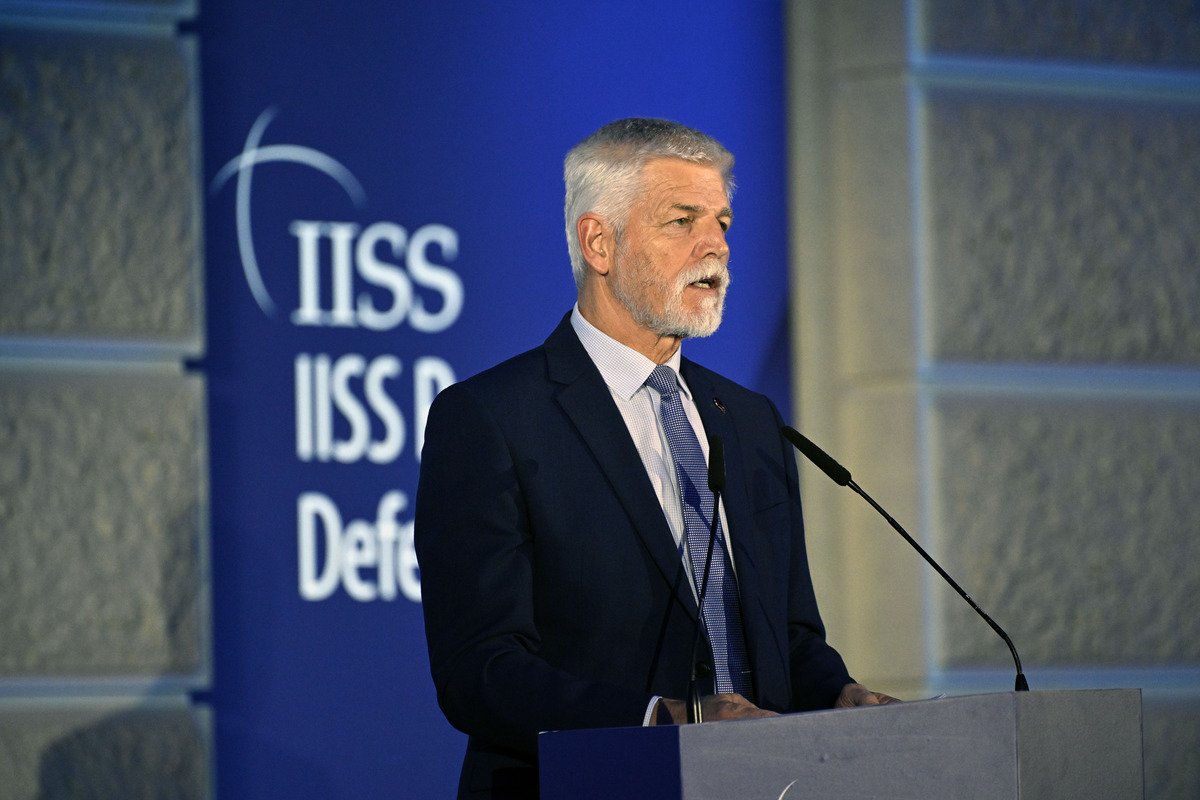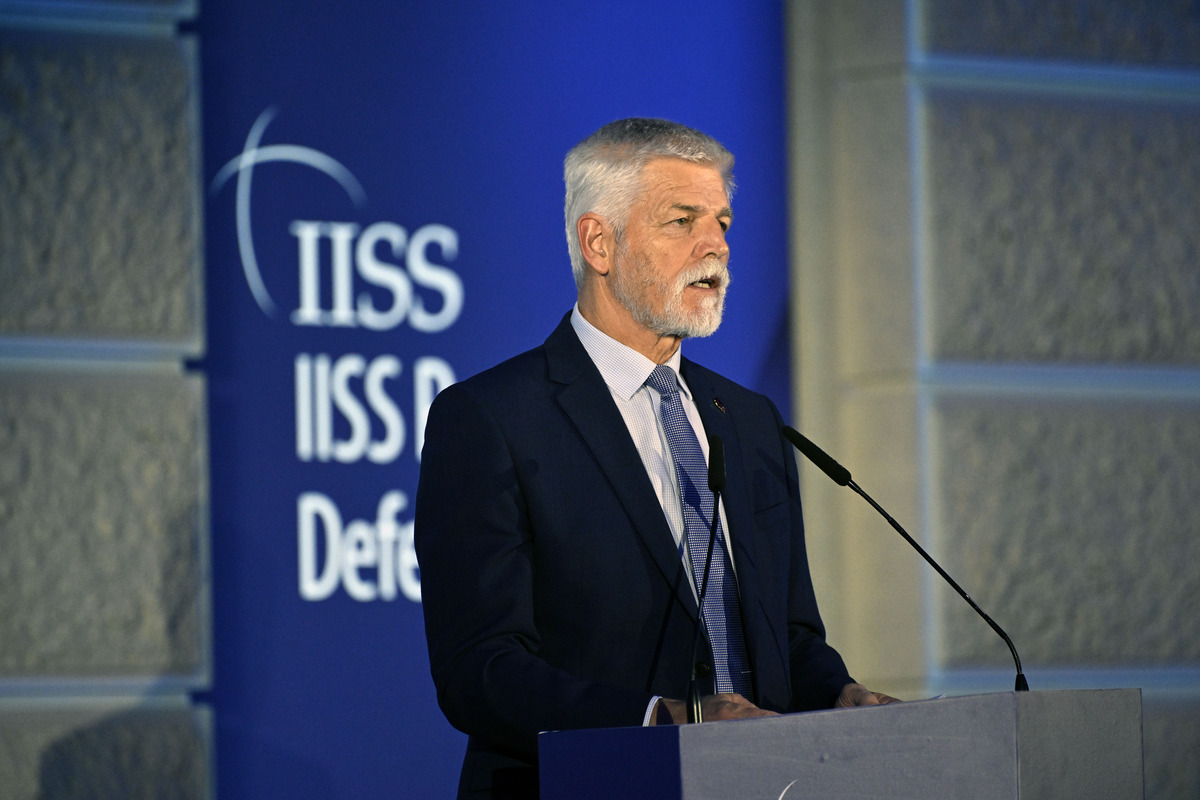President-elect Donald Trump is likely to succeed in efforts to end the long-running war between Russia and Ukraine, although it will probably put Kyiv and its European allies in NATO on the back foot, Czech President Petr Pavel has said.
Trump has repeatedly said he would put a stop to the more than two and a half years of war in Ukraine “within 24 hours” should he be reinstalled in the White House. He has not divulged how he hopes to swiftly end to the largest land war in Europe since World War II.
“I don’t think it is realistic, but at the same time, I believe that he will make an effort to end this war and to make a deal with President [Vladimir] Putin,” said Pavel, a retired general and former chairman of NATO’s military committee.
“It will most probably not be in our interest and in the interest of Ukraine to have such a deal,” Pavel said at the IISS Prague Defence Summit on Friday.
Advisers to the president-elect have signaled that a future deal may concede parts of Russian-controlled Ukraine to Moscow, delaying Kyiv’s membership to NATO for at least two decades, and handing Europe the long-term responsibility for protecting the eastern flank on the continent and hundreds of miles of demilitarized territory, Pavel said.

Czech President Petr Pavel speaks during the IISS Prague Defense Summit in Prague, Czech Republic, November 8, 2024. President-elect Donald Trump is likely to succeed in efforts to end the long-running war between Russia and…
Czech President Petr Pavel speaks during the IISS Prague Defense Summit in Prague, Czech Republic, November 8, 2024. President-elect Donald Trump is likely to succeed in efforts to end the long-running war between Russia and Ukraine, although it will probably put Kyiv and its European allies in NATO on the back foot, Pavel said.
More
CTK via AP Images
The president-elect is himself yet to decide how to get Ukrainian President Volodymyr Zelensky and Putin at the same negotiating table, the Wall Street Journal reported earlier this week.
The soon-to-be 47th president said in the run-up to the election that he had a “very exacting plan on how to stop Ukraine and Russia,” but swerved providing any details on the road map to an end to the conflict. The Kremlin has said it is not aware of any possible plan hatched by Trump, but that Putin is “open to a constructive dialogue.”
“Let’s wait and see what happens in January,” Kremlin spokesperson Dmitry Peskov told reporters on Wednesday.
One idea floated among officials in Trump’s camp could see Ukraine pledging not to join NATO for at least 20 years, while Washington continues sending weapons, the Journal reported, citing three people close to Trump and echoing Pavel’s remarks.
The conflict would also become frozen, with Russia keeping control of roughly a fifth of Ukraine and a demilitarized zone snaking through the country, likely policed by European forces.
“We can do training and other support, but the barrel of the gun is going to be European,” a member of Trump’s team told the Journal. “We are not sending American men and women to uphold peace in Ukraine. And we are not paying for it. Get the Poles, Germans, British and French to do it.”
“Trump has kept on saying he could solve the issue in one day,” said former NATO official Edward Hunter Christie. “No one believes that’s possible—that’s rhetoric,” he previously told Newsweek. But there is a fear that Trump could make a deal with Putin that puts Ukraine and its other allies in “huge difficulty,” he added.
Former Russian President Dmitry Medvedev, who remains a prominent and hawkish figure in Russian politics, said the Republican was a “businessman to the core,” describing this as a “quality that is useful for us.”
Anxieties had been high for Kyiv and many of Ukraine’s backers ahead of the election, fearing what Trump’s return to power may mean for Ukrainian forces at a moment in the war when they are steadily losing ground to Russia in the east.
Kyiv is heavily reliant on its supporters for military supplies. Trump has said he could end military aid to Ukraine if reelected.
Hungarian Prime Minister and Trump ally in Europe, Viktor Orbán, said on Friday that “the Americans are going to pull out of this war.” European officials insist continental NATO states must, and will, step up their defense spending, but it’s not clear whether Europe would be able to keep Kyiv supplied without the U.S.’ input.
NATO members are supposed to spent around 2 percent of their gross domestic product (GDP) on defense. However, this is not binding, and several countries have fallen short of this threshold, although fresh pushes in the last few years have seen many now meet the target.
No matter the victory in the presidential race, Pavel said, European NATO nations were always going have to do more to shore up their own defense. “With President Trump, we will probably have to do it faster,” Pavel added
Trump has hailed his “very good relationship” with the Russian president, while also insisting he enjoys good communication with Ukraine’s leader Zelensky.
Visiting Budapest on Thursday, Zelensky said that he believed Trump “really wants a quick decision” to end the war, but this “doesn’t mean that it will happen this way.”
